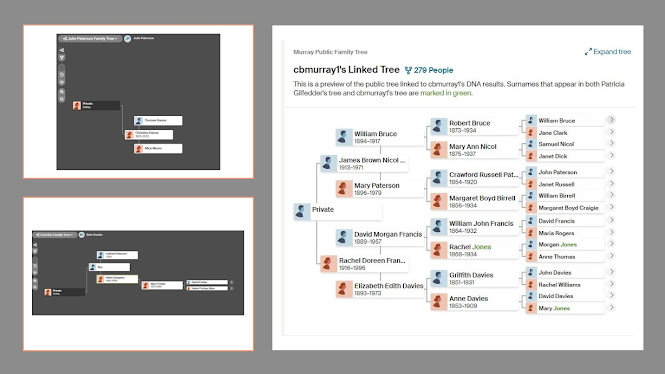Robert was a hero
Being in Scotland can sometimes be just the right time at the right place it sometimes feels like. Maybe just having 'time' to review all the historical material available is the key.
Two newspaper alerts, from MyHeritage, landed on my computer recently, I saw them this morning, at about 4.30am [recovering from jetlag, and not sleeping that well]..
"DALKEITH - SHOCKING ACCIDENT - Yesterday morning a deplorable accident occurred at the Newbattle Colliery, occupied by the Marquis of Lothian [Ed - that means he owns the land, unlikely he ever set foot in there], which resulted in the death of a carter named Robert Buchan, employed at the works, and by which a valuable horse was killed. Buchan had been getting a cart of coal weighed, when the horse bolted across the railway in front of three loaded waggons in motion. He sprang forward to catch the horse [remember he is 74, so he was probably not so 'springy'], when the waggons caught him, smashing his skull and killing him instantly. The forelegs of the horse were broken, and it was destroyed shortly afterwards."
- Glasgow Herald Wednesday, January 19 1887, p7
"TUESDAY - Robert Buchan, 75 years of age, who has been upwards of 30 years employed at Newbattle Colliery, met with a lamentable death on Tuesday. He was in charge of a horse and cart, and whilst making an effort to save the horse from a waggen [sic] which had accidentally got detached from a coal train, and was rushing down the incline, he stumbled, and falling before the waggon met with a terrible death. The horse which the old man was endeavouring to save was also killed."
- Dundee Courier, Jan 19 1887
In this latter paper, the terrible news of Robert's heroism was immediately followed by this: "Perfect health restored [at first I thought they were referring to an undocumented miracle] without medicine or expense [still could be that miracle] by Du Barry's Revalenta Arabica Food and Tonic biscuits, which repair the most disordered stomach ant [sic] bowels, the blood, the nerves, lungs, liver, brain, voler, and breath, and cure dyspepsia, indigestion, acidity, heartburn, constipation, nausea ..., haemorrhoids, dysentery, debility, sleeplessness, cough, asthma, consumption" - unfortunately absolutely useless for fractured skulls!
About a week ago, I returned to the National Mining Museum of Scotland, which is situated in the old Victoria colliery. This pit was opened in the 1890s, and was across the road from the Lingerwood colliery, then known as the Newbattle colliery where Robert died. I joined the tour run by Jim, a very elderly miner who never worked in the mine after the big strikes of the 1980s. I asked him about waggons, where would Robert have died? Horses were used both underground and above ground. From the above newspaper article mentioning the weighing of coal, it must have been above ground since the weighing occurred there.
This is a coal weighing waggon, the coal comes down the shute at the top. It is very big, and can weigh 20 tons when full. Train engines then pulled up to 20 such waggons to where-ever needed, said to have been used mostly in the Borders region, rather than the big industrial factories say near Glasgow.
The poor old bugger never stood a chance.






.png)
Comments
Post a Comment